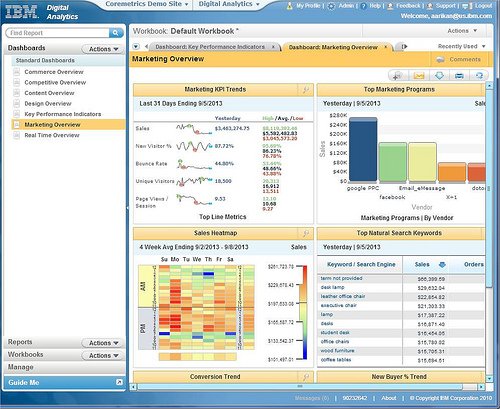Taking care of an estate involves tasks that may initially appear overwhelming. Nonetheless, by grasping the aspects of property management, people can efficiently uphold their investments. This article imparts wisdom on the various components of property management and presents handy advice to streamline the procedure.

Understanding Property Management
Managing a parcel of property involves responsibilities such as maintaining tenant relationships and keeping the property well-maintained to enhance its value and secure a consistent income flow. It requires planning and organization, along with upkeep, to ensure all aspects run smoothly for the benefit of all parties involved.
Maintaining Relationships with Tenants
Tenants are crucial in managing properties as they directly impact the management process of a property establishment. They create a line of communication that aids in nurturing a positive bond with them to minimize conflicts and misinterpretations. The presence of defined lease agreements and consistent follow-ups, along with addressing grievances, can help cultivate a peaceful cohabitation setting. Efficient interaction with tenants not only boosts the property’s image, it also plays a pivotal role in retaining tenants for extended periods, thereby curbing turnover expenses.
Taking Care of Upkeep
Upkeep and prompt fixes are required to keep a property in shape. Regular checks can uncover problems to prevent bigger issues. Setting up a maintenance plan helps ensure tasks are done promptly to avoid surprises. Moreover, engaging professionals for repairs can be an investment of both time and money. Well-cared-for properties tend to draw in tenants and hold their value well over the years.
Money Management
Effective financial control plays a role in the management of properties. Accurately documenting revenue. Costs assist in monitoring profitability and pinpointing opportunities for enhancement. Setting aside funds for repair work, taxes, and additional expenditures is key to maintaining security. Grasping the trends in the real estate market can help establish attractive rental fees and optimize income streams.
Legal Considerations
Dealing with aspects is a part of managing properties as it helps avoid legal troubles and safeguard the interests of property owners by following local laws and regulations diligently. It’s important to ensure lease agreements adhere to standards and grasp eviction procedures and tenant rights to handle conflicts efficiently. Knowing your rights protects property investments and also ensures adherence to regulatory requirements effectively.
Marketing and Advertising
Successfully attracting good tenants demands the use of marketing tactics. Emphasizing a property’s aspects and advantages can help it shine in a market. Leveraging platforms along with ads and word-of-mouth recommendations can expand visibility and appeal to prospective tenants. Quality photos and thorough descriptions improve property listings and draw-in renters. A thoughtfully crafted marketing strategy boosts occupancy rates and revenue generation effectively.
Real Estate Technology: Innovations in Managing Properties
Modern property management heavily relies on technology for its operations today. There are software options that help simplify tasks like collecting rent, scheduling maintenance, and communicating with tenants. Online platforms enable tours that can attract a range of potential tenants. Adopting technology can boost productivity, ease responsibilities, and enhance tenant contentment. Staying abreast of the developments can give property managers a competitive advantage.
Caring for the Environment
Adopting eco-friendly measures doesn’t just help the environment; it also cuts down on expenses for businesses or property owners. Upgrades like energy-saving LED lights and smart thermostats, as well as better insulation, all help reduce monthly utility costs. Encouraging recycling and waste reduction efforts further boosts the property’s credentials, with more tenants valuing living options these days and looking for energy-efficient properties to rent or buy. Investing in sustainability enhances a property’s appeal and also secures its profitability over time.
Emergency Readiness
Being ready for emergencies is a part of managing properties. It’s important to have a plan in place to keep everyone safe and reduce harm in situations. Regularly updating emergency service contacts and giving tenants clear directions is vital. Implementing drills and going over protocols improves readiness. Taking measures during emergencies protects both people and property, making tenants feel more secure.
In Summary
To be successful in managing properties and ensuring their long-term value and tenant satisfaction, property managers need to take an approach that includes handling tenant interactions, maintenance issues, financial management, compliance with laws, marketing strategies, tech integration, sustainability practices, and emergency planning. By excelling in these areas, individuals can maintain properties as investments that generate income and offer tenants a positive living environment. Stimulating these elements gives property managers the tools to run a thriving and enduring business that benefits everyone involved.

Founder Dinis Guarda
IntelligentHQ Your New Business Network.
IntelligentHQ is a Business network and an expert source for finance, capital markets and intelligence for thousands of global business professionals, startups, and companies.
We exist at the point of intersection between technology, social media, finance and innovation.
IntelligentHQ leverages innovation and scale of social digital technology, analytics, news, and distribution to create an unparalleled, full digital medium and social business networks spectrum.
IntelligentHQ is working hard, to become a trusted, and indispensable source of business news and analytics, within financial services and its associated supply chains and ecosystems




























